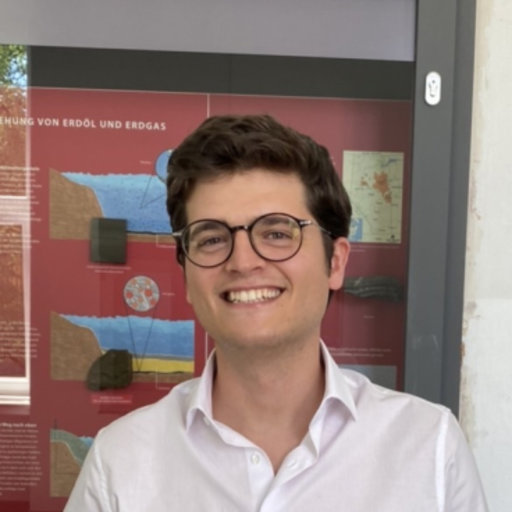
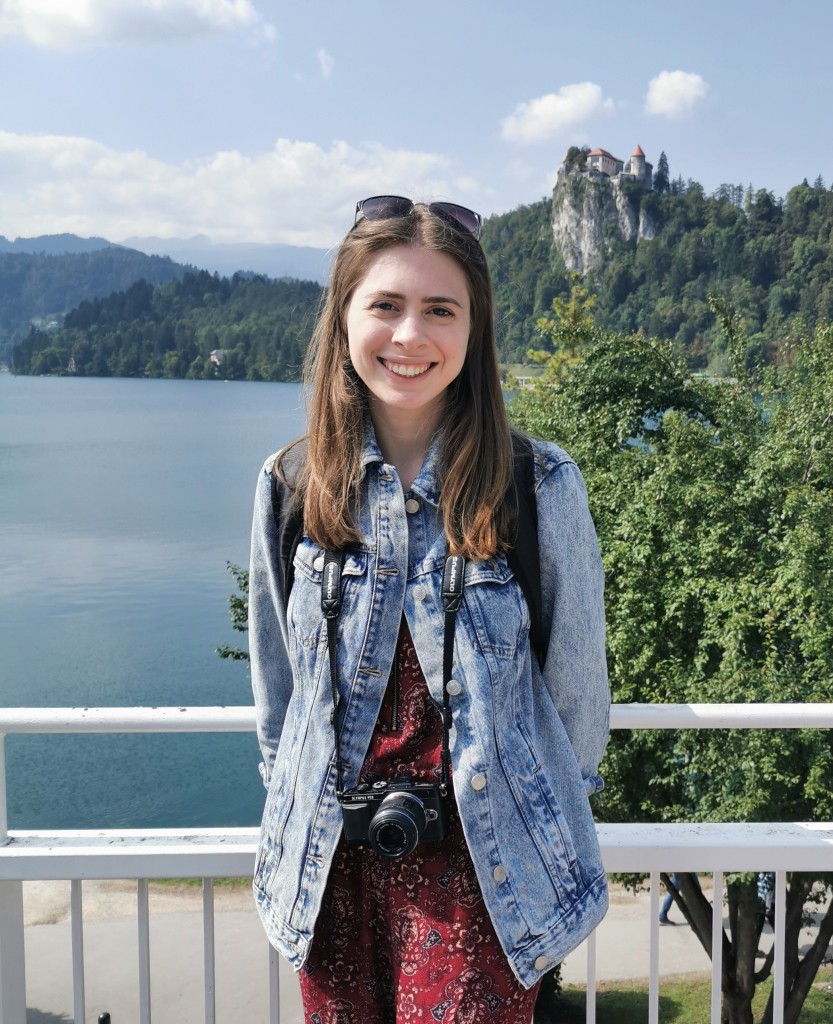
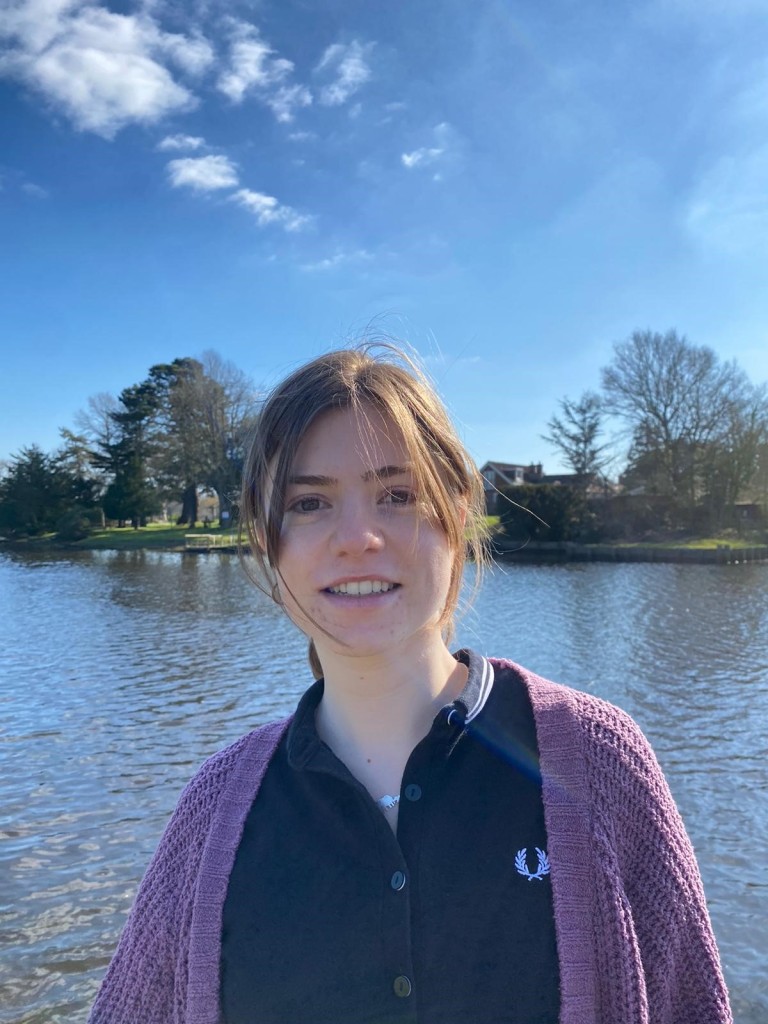




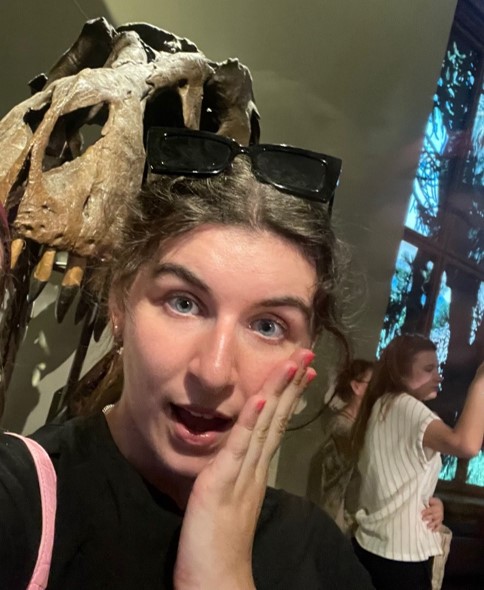
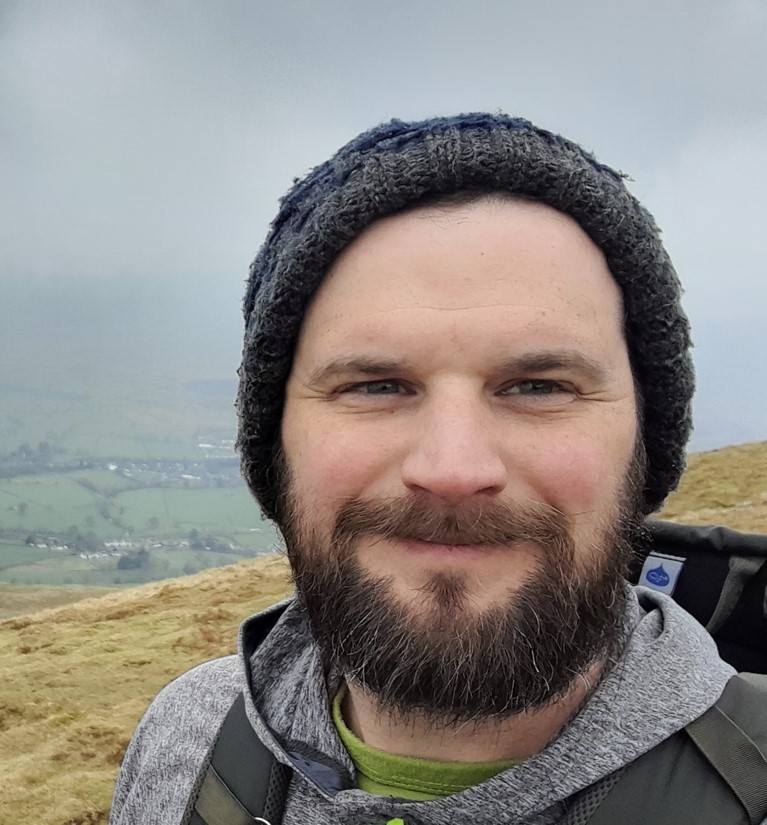
Current lab members
Principle Investigator
Dr Alex Dunhill Associate Professor of Palaeobiology, School of Earth and Environment, University of Leeds.
I have a PhD from the University of Bristol and I am a graduate of the University of Sheffield. Prior to my faculty appointment, I was a Leverhulme Early Career Fellow at Leeds and was previously a Royal Commission for the Exhibition of 1851 Research Fellow in the Milner Centre for Evolution at the University of Bath.
My research focuses on large scale macroevolutionary and macroecological processes through deep time with a particular emphasis on late Palaeozoic and early Mesozoic mass extinction events and the accuracy of biodiversity data obtained from the fossil record. I am a member of the Earth Surface Science Institute and the Palaeo@Leeds Research Group.
Postdoctoral Research Fellows
Dr Baran Karapunar (2024-) (NERC Pushing the Frontiers Grant Postdoctoral Research Fellow) Community And Structural CollApse During mass Extinctions (CASCaDE) – Lead supervisor: Dr Alex Dunhill; co-supervisors: Prof Crispin Little, Prof Andrew Beckerman (Sheffield), Dr Jennifer Dunne (Santa Fe Institute) and Prof Pincelli Hull (Yale University).
Postgraduate Researchers
Amy Shipley (2021-) (NERC DTP PhD; CASE funding Santa Fe Institute; SEE Leeds) What were the trophic consequences of the extinction of the largest apex predator of all time? – Lead supervisor: Dr Alex Dunhill, co-supervisors: Dr Tracy Aze (SEE, Leeds), Dr Catalina Pimiento (Swansea/Zurich), Prof Andrew Beckerman (Sheffield), Prof Jennifer Dunne (Santa Fe Institute).
Lydia Woods (2021-) (Leverhulme Extinction Studies DTP; SEE Leeds) Ecosystem robustness through Earth history – Lead supervisor: Dr Alex Dunhill, co-supervisors: Dr Maria Beger (Biology, Leeds), Dr Chris Hassall (Biology, Leeds).
Meghan Jenkinson (2022-) (NERC Panorama DTP PhD; SEE Leeds) Regional investigation of extinction-recovery patterns during the Toarcian (Lower Jurassic) hyperthermal event – Lead supervisor: Prof Crispin Little (SEE); co-supervisors: Dr Alex Dunhill, Dr Kevin Page (University of Exeter), Mr Matt Williams (Bath Royal Literary and Scientific Society), Dr Andrew Newell (British Geological Survey).
Kate Simpson (2022-) (Leverhulme Extinction Studies DTP; School of English, Leeds) Rhetoric and Empathy: The Role of Ecopoetry in Conceptualising Mass Extinction Events – Lead supervisor Prof Graham Huggan (School of English); co-supervisors: Dr Caitlin Stobie (School of English), Dr Alex Dunhill.
Charlotte Clay (2022-) (Leverhulme Extinction Studies DTP; School of Biology, Leeds) Predicting future changes to coral reef functioning and species interactions from past coral reef extinctions – Lead Supervisor: Dr Maria Beger (School of Biology); co-supervisor: Dr Alex Dunhill.
Annabel Nicholls (2023-) (NERC Exploring the Frontiers Grant Research Assistant) Ecosystem recovery following the Permo-Triassic mass extinction – Lead supervisor: Dr Alex Dunhill; co-supervisors: Prof Paul Wignall, Prof Andrew Beckerman (Sheffield), Dr Jack Shaw (Santa Fe Institute) and Prof Haijun Song (China University of Geoscience, Wuhan).
Euan Malpas-Vernon (2023-) (Leverhulme Extinction Studies DTP; SEE Leeds) Dynamics and response of ecosystems to mass extinctions, in the context of Middle Jurassic – Lead supervisor: Prof Paul Wignall co-supervisors: Dr Alex Dunhill and Prof Crispin Little
Undergraduate researchers
Anna Hayward (2023-) (Natural Sciences MSci Project Student) Can we use the fossil record to predict the 6th mass extinction? Supervisors: Dr Richard Mann (School of Mathematics) and Dr Alex Dunhill.
External members
—
Alumnae/i
Ellie Defty (2023-) (Palaeontological Association Undergraduate Bursary Intern) Lilliput sharks and marine apex predators of the Permo-Triassic – Lead supervisor: Dr Alex Dunhill; co-supervisors Amy Shipley, Lydia Woods.
Olivia Jarratt (2022-2023) (BSc Environmental Science project student) Ecosystem structure changes across the Pliocene megafaunal extinction in the South Pacific Ocean – Lead supervisor: Dr Alex Dunhill; co-supervisors Amy Shipley, Lydia Woods.
Isobel Nash (2021-2022) (Undergraduate intern; NERC ecoPT-sponsored internship; SEE Leeds) How well does geographic range predict extinction risk across periods of background and mass extinction? – Lead supervisor: Alex Dunhill, co-supervisors: Bethany Allen (SEE Leeds), Paul Wignall (SEE Leeds).
Dr Bethany Allen (2017-2021) (NERC DTP PhD; SEE Leeds) Biodiversity in the extreme world of Pangaea – Lead supervisor: Dr Alex Dunhill, co-supervisors: Daniel Hill (SEE, Leeds), Erin Saupe (Oxford), Paul Wignall (SEE, Leeds).
Dr Adam Woodhouse (2016-2021) (NERC DTP PhD; SEE Leeds) Death in the Oceans: extinction risk in the marine realm – Lead supervisor: Dr Tracy Aze (SEE, Leeds), co-supervisors: Alex Dunhill, Paul Wignall (SEE, Leeds).
Lucy Cooper (2020-2021) (MGeol project student; SEE Leeds) Biodiversity in the extreme world of Pangaea: the shape of the Triassic-Jurassic latitudinal diversity gradient – Lead supervisor: Paul Wignall, co-supervisors: Bethany Allen (SEE Leeds), Alex Dunhill.
Benjamin Kelly (2020-2021) (MGeol project student; SEE Leeds) How good is the best fossil record? Modelling brachiopod diversity patterns through the Phanerozoic – Lead supervisor: Alex Dunhill, co-supervisor: Bethany Allen (SEE Leeds).
Emma Long (2020-2021) (MGeol project student; SEE Leeds) How well does geographic range predict extinction risk across the Permo-Triassic mass extinction? – Lead supervisor: Alex Dunhill, co-supervisors: Bethany Allen (SEE Leeds), Paul Wignall (SEE Leeds).
Thomas Pavey (2020-2021) (MGeol project student; SEE Leeds) Modelling trophic interactions and marine ecosystem complexity from palaeoecological trait data in the exceptionally preserved Peterborough Member from the Middle Jurassic of the UK – Lead supervisor: Alex Dunhill, co-supervisors: Jack Shaw (Yale), Paul Wignall (SEE Leeds).
William Pullen (2020-2021) (MGeol project student; SEE Leeds) Modelling trophic interactions and marine ecosystem complexity from palaeoecological trait data in the exceptionally preserved Strawberry Bank Faunas from the Lower Jurassic of the UK – Lead supervisor: Alex Dunhill, co-supervisors: Jack Shaw (Yale), Paul Wignall (SEE Leeds), Mike Benton (Bristol).
Polly Spruce (2020-2021) (Undergraduate intern; PalAss Undergraduate Bursary award; SEE Leeds) Deep-fried calamari? The effect of Early Triassic extreme global warming on cephalopod biogeography – Lead supervisor: Alex Dunhill, co-supervisors: Bethany Allen (SEE Leeds) and Paul Wignall (SEE Leeds).
Imogen Trigger (2020-2021) (MGeol project student; SEE Leeds) Was there a Norian ammonoid extinction? – Lead supervisor: Paul Wignall, co-supervisors: Alex Dunhill and Bethany Allen (SEE Leeds).
Karolina Zarzyczny (2017-2020) (Undergraduate intern; PalAss Undergraduate Bursary award; SEE Leeds) Reconstructing food webs across the Toarcian Ocean Anoxic Event – Lead supervisor: Dr Alex Dunhill, co-supervisors: Cris Little (SEE Leeds), Jed Atkinson (SEE Leeds) and Autumn Pugh (SEE Leeds).
Isobel Fortune (2018-2019) (MEnv project student; SEE Leeds) Reconstructing Jurassic food webs – Lead supervisor: Alex Dunhill, co-supervisors: Bethany Allen (SEE Leeds), Paul Wignall (SEE Leeds).
Emily Turner (2018-2019) (MGeol project student; SEE Leeds) The Late Triassic mass extinction in northern Sicily – Lead supervisor: Alex Dunhill, co-supervisors: Jacopo Dal Corso (SEE Leeds), Paul Wignall (SEE Leeds).
Dr Thomas Stubbs (2018-2019) (NERC grant BETR project, School of Earth Sciences, University of Bristol) Ecosystem resilience across the Permo-Triassic boundary.
Dr Fiona Walker (2014-2018) (NERC/BGS CASE PhD; School of Earth Sciences, Bristol) Taxonomic diversity in the fossil record: sampling and real richness – Lead supervisor: Mike Benton (Bristol), co-supervisors: Alex Dunhill, Andrew Newell (BGS) and Mark Woods (BGS).
Aislinn Vickers-Arrigo (2017-2018) (Undergraduate dissertation student, SEE Leeds) Biogeography of the early Toarcian Ocean Anoxic Event. Lead supervisor: Dr Alex Dunhill.
Dr Haijun Song (2016-2018) (Marie Curie Research Fellow) SurE-TESTS: Surviving extinction: traits encouraging survival at times of stress.
Jack Creighton (2016-2017) (MGeol project student; SEE Leeds) Hot enough to die! A study of latitudinal biodiversity in terrestrial tetrapods following the End-Permian mass extinction – Lead supervisor: Alex Dunhill, co-supervisor: Paul Wignall (SEE, Leeds).
Cian Grace (2016-2017) (MGeol project student; SEE Leeds) Hot enough to die! A palaeolatitudinal biodiversity study of marine vertebrates following the end-Permian mass extinction – Lead supervisor: Alex Dunhill, co-supervisor: Paul Wignall (SEE, Leeds).
Fiona Pye (2016) (Undergraduate summer intern; PalAss Undergraduate Bursary award; SEE Leeds) Survival of the smallest? Trends in brachiopod size across the End-Triassic mass extinction – Lead supervisor: Alex Dunhill, co-supervisors: Richard Twitchett (NHM) and Zoe Hughes (NHM).
Dr Jordan Bestwick (2015-2016) (Undergraduate intern) Dinosaur biogeographical structure and Mesozoic continental fragmentation: a network-based approach.
Holly Narey (2013-14) (BSc project student; Department of Biology and Biochemistry, Bath) Mesozoic dinosaur biogeography: A network approach – Lead supervisor: Alex Dunhill, co-supervisor: James Sciberras (Bath)
Dr Terri Cleary (2012-13) (MSc; School of Earth Sciences, Bristol) Completeness metrics, sampling biases, and the fossil record of the Ichthyosauria – Lead supervisor: Alex Dunhill, co-supervisors: Mike Benton (Bristol) and Benjamin Moon (Bristol).
Dr Dan Driscoll (2012-13) (MSc; School of Earth Sciences, Bristol) The Mosasaur record: Through the lens of fossil completeness – Lead supervisor: Alex Dunhill, co-supervisors: Mike Benton (Bristol) and Thomas Stubbs (Bristol).
Kara Ludwig (2012-13) (MSc; School of Earth Sciences, Bristol) Investigating Cynodontia: Quality of the fossil record and the roots of mammalian diversity – Lead supervisor: Alex Dunhill, co-supervisors: Jennifer Botha-Brink (Bleomfontein), Marcello Ruta (Lincoln) and Mike Benton (Bristol).